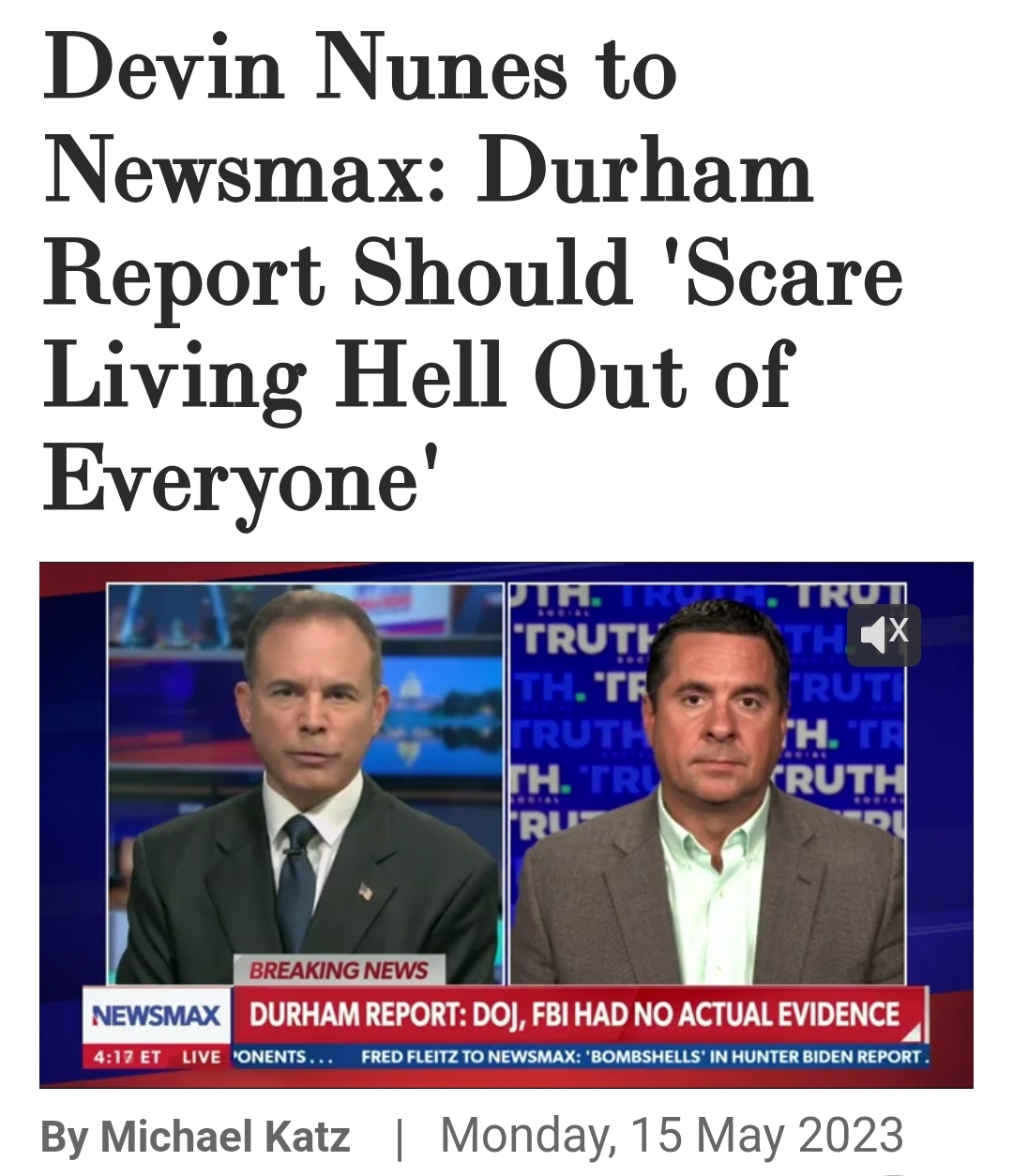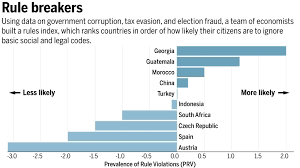
CLICK HERE FOR VIDEO. Rep. Devin Nunes, R-Calif., told Newsmax on Monday that even after a cursory reading, the Durham Report on FBI misconduct in its investigation of ties between Russia and Donald Trump's 2016 presidential campaign should "scare the living hell out of everyone."
"I take this from my early just cruising of the report, and that is that the Department of Justice and the FBI are solely owned by the Democratic Party and their propaganda machine," Nunes, CEO of Trump Media & Technology Group, told "The Chris Salcedo Show." "This Durham report ought to scare the living hell out of everyone because think about this, it has only gotten worse since this time period.
"We're talking about 2016 and 2017 and 2018. This changed the course of human history. It changed the course of our elections. Remember? We had to sit through year after year after year of this nonsense of Trump and Republicans having something to do with Russia."
And here’s a variation on the theme that seems to have a reliable source. The quote below can be found on page 181 of the book:
The rules are simple: they lie to us, we know they’re lying, they know we know they’re lying, but they keep lying to us, and we keep pretending to believe them. ― Elena Gorokhova, author, A Mountain of Crumbs
Both of the above authors (Solzhenitsyn and Elena Gorokhova) may have developed their sayings based on an old Soviet joke which reads like the following:
The authorities pretend they are paying wages, workers pretend they are working.
Alternatively, So long as the bosses pretend to pay us, we will pretend to work. (via Wikipedia).
Corrupt societies encourage lying .
Individuals in countries with dishonest leaders and weak institutions are more likely to fudge the truth

When do we decide it's OK to tell a lie? Perhaps when we see people in positions of power doing the same. A new study finds that individuals are more likely to lie if they live in a country with high levels of institutional corruption and fraud—suggesting that poorly run institutions hurt society in more ways than previously suspected.
Past research has shown that people are more likely to break the rules if those around them are also doing so. For instance, people surrounded by graffiti and litter are more likely to drop trash themselves. "But what we really don't know is to what extent societal norms like political fraud, corruption, and tax evasion trickle down—and to what extent such societal norms corrupt individuals," says Shaul Shalvi, a behavioral scientist at the University of Amsterdam who was not involved in the work.
To find out, researchers pulled data on government corruption, tax evasion, and election fraud from the World Bank and Freedom House, a nongovernmental organization that researches democracy and political freedom, for 159 countries. They combined these rates into an index that measured institutionalized rule-breaking.
-SCIENCE 3-9-16 laurel Hamers









No comments:
Post a Comment